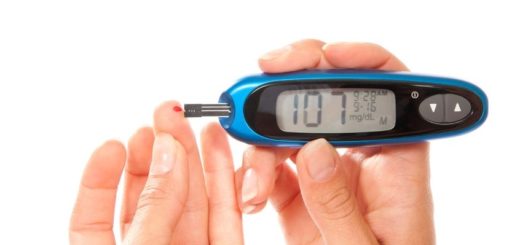10 Ways To Get Rid Of Stomach Ulcers
Stomach ulcers are painful and incredibly frustrating. They can ruin your quality of life, weaken your body and even create room for opportunistic ailments to develop. It is even more worrying to learn that over 25 million Americans suffer from this condition and that most people don’t understand what exactly they need to do in order to get rid of its dire effects. You may have found a lot of tips and tricks when looking for how to get rid of stomach ulcers.
With that being said, for anything you are not familiar with, speaking to your doctor or doing thorough research could come in handy. Considering the drug Zantac is being recalled as there have been people diagnosed with cancer after taking this, you may find that the assistance of someone like a personal injury lawyer las vegas could come in handy at a time like this. It is always best to be safe than sorry.
Gladly, we have found 10 effective ways that can help you reduce the impact of stomach ulcers and provide a lifetime solution to the problem. Below is a rundown of recommended treatment alternatives.
1.Take Cabbage Soup
Cabbage is a lactic acid food and it helps produce an amino acid that stimulates blood flow to the stomach lining. That helps strengthen the mucosal layer, which protects the stomach lining for harsh digestive juices that contain HCL. In addition, cabbage soup is rich in vitamin C, which has been found to be beneficial in quarantining H. pylori – a bacteria that promotes acidity in the stomach. To treat stomach ulcers, you only need to take a half cup of cabbage juice once in the morning on an empty stomach and once before bedtime (repeating daily for a few weeks).
2.Introduce Bananas To Your Diet
Bananas are an ideal addition to your stomach ulcer diet because they contain certain antibacterial compounds that stabilize acidity levels. In addition, both ripe and unripe bananas play a big role in preventing further rise in H. pylori effects effectively protecting the stomach lining from further damage or inflammation.
- Eat at least 3 ripe bananas every day.
- If you don’t like bananas, you can make banana milkshakes.
- Take 3 times a day continuously for 7 days.
3.Take More Probiotics
Probiotics are the living bacteria and yeast that keep the digestive system moving. A shortage of probiotics may contribute to the rise of H. pylori and negatively affect your rate of recovery. Luckily, it is easy to enhance your supply of probiotics through your day to day diet. Fermented foods like yogurt, buttermilk, miso and kimchi are particularly rich in it and you can take them regularly to wipe out the stomach ulcer pain over time.

4.Go Slow On Milk
There is popular belief that milk can help in ulcer treatment but as it turns out that may not always be true. When you take milk, it first forms a protective barrier in your stomach, which initially soothes the pain. However, as digestion takes place, more acid is produced to digest the protein that is in milk and that causes even more acidity. So avoid milk.
5.Stress Is An Enemy
Although stress does not always cause ulcers, those whose bodies respond to stress by producing more acid in the stomach may be more likely to encourage the growth of H. pylori bacteria. This can damage the stomach lining badly. So as a measure to ensure speedy recovery and treat stomach ulcers, be sure to de-stress. Remember, no matter how tight your schedule is, your health is more important.
6.Use Acid Blockers
It is true that digestive acids are important for proper digestion. However, sometimes the body releases too much acid than necessary. In such circumstances, the level of stomach acid being synthesized has to be reduced in order to reduce the discomfort. Talk to your local pharmacist about the option of acid blockers in relation to your health.
7.Stock Up On Proton Pump Inhibitors
Studies of the anatomy of the human stomach have revealed that four kinds of cells cover the inner lining of the stomach. Of these four, the parietal cells perform the role of producing HCL acid which is required for digestion. The role of PPIs is to slow down the parietal cells and reduce the amount of acid being produced. Some examples of PPIs include:
- Nexium
- Prevacid
- Acipex
- Rabeprazole (cheap prices of this can be found on Edrugsearch.com)
8.You May Need Some Antibiotics
As we have seen so far, H. pylori bacteria infection is the main culprit behind stomach ulcers. And this being a bacterial pain, it is important to use a form of treatment that is specifically meant for bacteria. The good thing with using antibiotics is that they provide a mainstay form of treatment which can reduce the stomach ulcer pain and even permanently eradicate the symptoms in 14 days. Some examples of antibiotics generally recommended for ulcer patients include:
- Metronidazole
- Amoxicillin
- Tetracycline
- Clarithromycin
9.Neutralize The Acidity With Antiacids
Another effective way to promote ulcer healing is by use of antiacids which nullify the effect of antiacids. This medication helps raise the pH value of your stomach and soften the effects of HCL essentially providing relief from pain. And although antiacids are highly effective, they work best if complemented with a proper stomach ulcer diet and abstinence from alcohol. Some examples that are commonly prescribed include:
- Gelusil
- Maalox
- Mylanta
10.Histamine H2 Acid Reducer
H2 acid reducers are available both in prescription and nonprescription forms. They are usually taken by mouth although some can be delivered by injections. Normally this treatment is recommended alongside antiacids or antibiotics to treat chronic pylori presence and promote healing. Ranitide is one of the most commonly used H2-receptor antagonist for treating ulcers. Some side effects may however be experienced including:
- Dizziness
- Tiredness
- Rashes
- Diarrhea
- Headaches
Other Useful Tips to Get Rid of Stomach Ulcers
- If you smoke, you need to quit. Smoking tends to irritate the ulcer and cause more pain.
- Avoid fatty foods, caffeine, spicy foods and alcohol as these tend to do more harm than good to an ulcer.
- Avoid going for long periods without eating. If possible take 5 to 6 small meals spread throughout the day.
- Do not take vitamin supplements on an empty stomach.
- Don’t take carbonated drinks or alcohol on an empty stomach. If possible avoid alcohol completely.
- Brush your teeth twice a day. Sometimes the upper part of your gastrointestinal system needs to be free of acid and bacteria as well.
- Take adequate water throughout the day but be keen enough to avoid taking water on an empty stomach particularly if you are not expecting the next meal soon.
- Exercise frequently, this can help reduce any form of stress that might be aggravating your condition.


